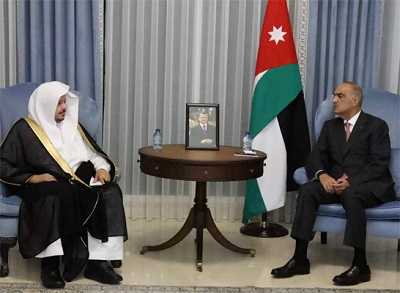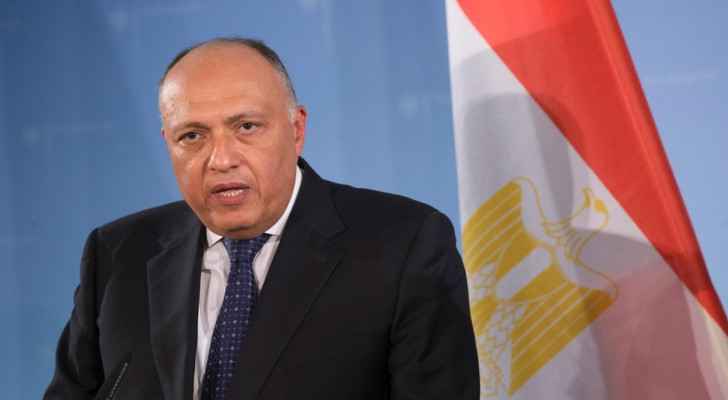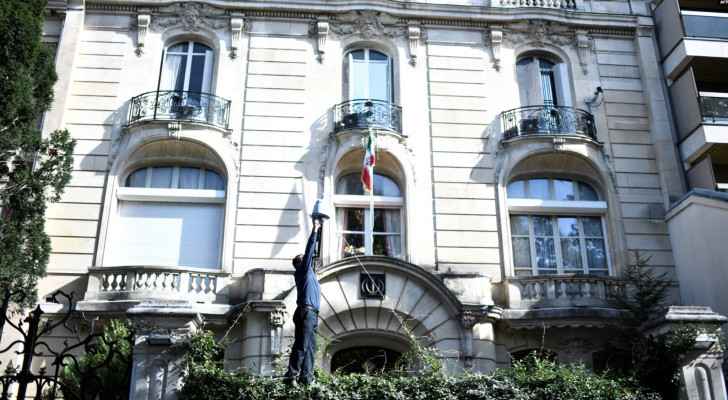Was there ever a unified Arab stance towards Iran? - By Mashari Althaydi, Al Arabiya
American President Donald Trump’s harsh blow by withdrawing from the “bad” agreement with the Iranian regime shocked many parties across the world and turned heads.
The Europeans had bet on playing on Trump’s character and influencing his decision via some special ways, like when French President Emmanuel Macron courted Trump. German chancellor Angela Merkel tried to pressure Trump, and many others tried to change his mind but he neglected all the Europeans’ statements. He had given them time to pressure the Iranians to “amend” this destructive agreement which Obama and his global networks brag about. The essence of the amendment which Trump had demanded was: ending the ballistic missiles program and halting evil Iranian interferences in the Middle East. The Europeans however did nothing. As to why the Europeans are dying to preserve the Iranian deal then this is something else as today I want to comment on the Arab stance – if it’s right to talk about an Arab stance – in general regarding the major American withdrawal from the Iranian deal.
The story is clear for Saudi Arabia, the United Arab Emirates and Bahrain. Trump’s measure is excellent and they can only support him for reasons that pertain to their views of the nature of the Iranian threat which was neglected by the leaders of the countries that signed the deal in 2015 without the presence of any Arab party.
What about the rest of the Arabs?
Egyptian stance
There is the Egyptian stance as expressed by the foreign ministry’s statement. This part attracted my attention: “Egypt confirms the importance of the participation of the concerned Arab parties in any dialogue about the future of the situation in the region, particularly any dialogue that’s linked to the possibilities of amending the nuclear deal with Iran.”
Great, but does this request include the attendance of, for example, Lebanon, Iraq and Syria?
These countries, or to be more accurate the “actual” ruling authorities in these countries, are biased to Iran in varying degrees so how can we talk about one Arab stance in this case?
There is also the Kuwaiti stance, as expressed by the foreign ministry, which falls in the “middle” as it neither strongly supported Trump’s move nor clearly objected to it. After explaining Kuwait’s justifications for supporting the deal in the past, the statement said: “Kuwait respects and understands America’s withdrawal from the deal.”
Qatar which embraces American military bases and which has excellent relations with Iran is in a bad fix especially after the anti-terror quartet’s boycott. Commenting on the American move, the foreign ministry said in a statement: “It’s in all parties’ interest to act with restraint and deal wisely and patiently with the situation and attempt to resolve current disputes via dialogue.”
We do not know what is meant here by wisdom or the “patience” it calls for.
In short, there’s nothing called a unified Arab stance but there are several Arab interests and perhaps contradictory ones. This is how the situation is whether you like it or not.
Latest News
 Dubai reels from floods chaos after record rains
Dubai reels from floods chaos after record rains Khasawneh, Saudi Shura Council speaker discuss bilateral ties, regional developments
Khasawneh, Saudi Shura Council speaker discuss bilateral ties, regional developments Egyptian Foreign Minister condemns potential Palestinian displacement as 'war crime'
Egyptian Foreign Minister condemns potential Palestinian displacement as 'war crime' Travelers from Jordan advised to confirm flights amid Gulf weather turmoil
Travelers from Jordan advised to confirm flights amid Gulf weather turmoil France summons Iranian ambassador over strikes against “Israel”
France summons Iranian ambassador over strikes against “Israel”
Most Read Articles
- Dubai reels from floods chaos after record rains
- Security Council to vote Thursday on Palestinian state UN membership
- King, Bahrain monarch stress need to maintain Arab coordination
- Khasawneh, Saudi Shura Council speaker discuss bilateral ties, regional developments
- Hizbollah says struck Israel base in retaliation for fighters' killing
- Jordan will take down any projectiles threatening its people, sovereignty — Safadi
- Tesla asks shareholders to reapprove huge Musk pay deal
- The mystery of US interest rates - By The mystery of US interest rates, The Jordan Times
- Princess Basma checks on patients receiving treatments
- Knights of Change launches nationwide blood donation campaign for Gaza